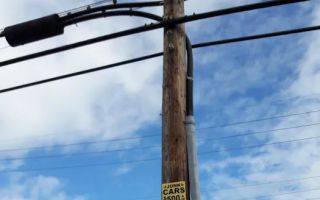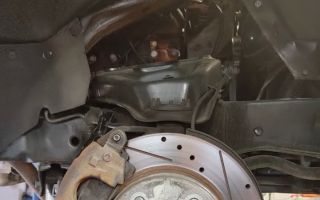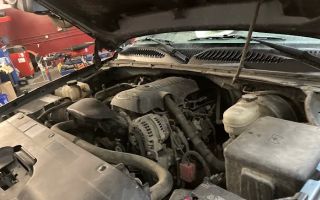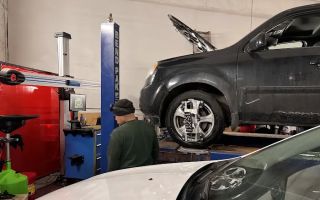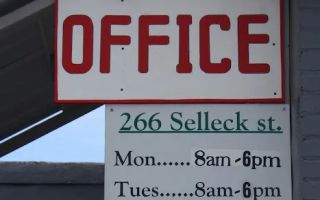How to Troubleshoot a Bad Car Alternator: Expert Tips for Quick Resolution
As a car owner, there’s nothing more frustrating than having your vehicle suddenly stop working without any obvious reason. One of the most common culprits of sudden car issues is a failing alternator. A bad alternator can cause all sorts of electrical problems, from dimming lights to a dead battery. If you’re experiencing trouble with your vehicle’s power system, it might be time to troubleshoot your alternator. In this guide, we will walk you through the steps to diagnose and fix a bad car alternator, and how towing and roadside assistance can help you out of an emergency.

Victory Lane Quick Oil Change (Milford)
1235 E Commerce St, Milford, MI 48381, USA
1. Recognizing the Signs of a Failing Alternator
The alternator is responsible for keeping your battery charged and supplying power to the car’s electrical system. When it starts to fail, you may notice several signs. These include:
- Dim or Flickering Lights: If your headlights and dashboard lights seem dimmer than usual or flicker intermittently, it could indicate that your alternator is struggling to charge the battery.
- Dead Battery: A faulty alternator might not charge the battery properly, leaving you with a dead battery even after a jump-start.
- Electrical Failures: If your car’s electronics, such as the power windows or stereo, stop working, this could be due to a lack of power supply from the alternator.
- Unusual Sounds: A grinding or whining sound near the engine could be a sign that your alternator bearings are damaged.
- Warning Light: Many modern cars have an alternator warning light on the dashboard that lights up when the alternator is malfunctioning.
2. How to Troubleshoot Your Alternator
If you suspect your alternator is on the fritz, follow these steps to troubleshoot the issue:
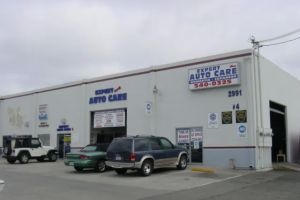
Expert Auto Care
2991 Grace Ln #4, Costa Mesa, CA 92626, USA
Step 1: Check the Battery
Before you dive into diagnosing the alternator itself, it’s important to check the condition of your battery. A simple way to test this is by using a multimeter to check the voltage. A healthy battery should show a voltage between 12.4V and 12.7V when the car is off. If your battery shows significantly lower voltage, it might be time to replace the battery instead of the alternator.
Step 2: Inspect the Alternator Belt
The alternator belt is crucial for transferring power from the engine to the alternator. If it’s loose, cracked, or damaged, it can prevent the alternator from functioning correctly. Check the belt for wear and tension, and replace it if necessary.
Step 3: Test the Alternator Output
Once you've checked the battery and belt, it’s time to test the alternator. Start the car and use a multimeter to check the voltage at the battery terminals. If the voltage is higher than 14.5V, your alternator is charging the battery correctly. If it’s lower than this, the alternator might not be generating enough power.
Step 4: Listen for Unusual Sounds
If your alternator is producing grinding or whining noises, it could be a sign of internal damage to the alternator bearings. This issue typically requires a replacement alternator.
3. Common Causes of Alternator Failure
Alternators can fail for various reasons, including:
- Wear and Tear: Over time, components in the alternator, such as the bearings and brushes, can wear out, causing failure.
- Electrical Issues: Short circuits or electrical surges can damage the alternator's internal components.
- Excessive Heat: Alternators that operate in extremely hot conditions can suffer from overheating, leading to failure.
- Faulty Wiring: Loose or corroded wiring can prevent the alternator from charging the battery properly.
4. Should You Replace or Repair the Alternator?
When faced with a failing alternator, the question arises: should you repair or replace it? In many cases, replacing the alternator is the more cost-effective solution, especially if it’s an older model. Alternator repair can be expensive, and if the alternator has already undergone significant wear, replacing it will give you peace of mind and ensure reliable vehicle operation.
5. How Towing and Roadside Assistance Can Help
If you find yourself stranded due to a bad alternator, professional towing services can be a lifesaver. Many towing companies also offer roadside assistance, which can help jump-start your car or take you to a nearby mechanic. Here’s how a towing service can help:
- Jump-starting your vehicle: If your battery is dead but the alternator is still working, a towing service can jump-start your car to get you back on the road.
- Battery replacement: Some towing companies provide emergency battery replacement services.
- Alternator diagnostics and repair: If the issue lies with the alternator, the towing company may transport your vehicle to an auto shop for further inspection and repair.
6. Real-Life Case: A Nighttime Towing Service Experience
Let’s look at a real-life case of a customer who experienced an alternator failure on a late-night road trip. Jane, a traveler from California, was driving through the desert when her car's lights started to flicker. The dashboard warning light came on, and soon after, the engine died entirely. Jane called a local towing service, who quickly arrived, diagnosed the issue, and towed her to a nearby auto repair shop. The alternator was found to be faulty, and it was replaced the next day. Thanks to the quick response of the towing company, Jane was back on the road in no time, avoiding a potentially costly delay in her travels.
7. Why Choose Our Towing Services for Your Car Alternator Issues?
If you're facing alternator trouble, our professional towing and roadside assistance services are here to help. With expert technicians, quick response times, and affordable rates, we ensure that your vehicle is back up and running as soon as possible. Whether you need a jump-start, battery replacement, or alternator repair, we’ve got you covered.
Don't let alternator issues ruin your day. Contact us today for reliable towing and roadside assistance services. We’re available 24/7 to get you back on the road, no matter where you are.


